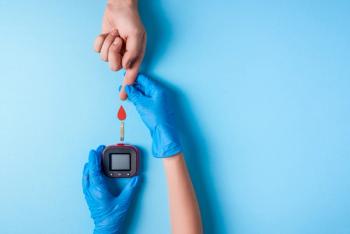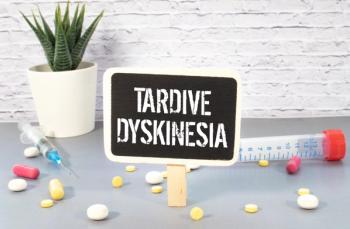
PTSD Therapies on the Fast Track
Several drugs with novel mechanisms of action have been put on the pathway for speedier approval decisions by the FDA. Phase 2 and 3 trials are underway.
Post-traumatic stress disorder (PTSD) is a chronic psychiatric condition that occurs in some people after experiencing or witnessing traumatic events, such as military combat trauma, childhood trauma and physical or sexual assault. PTSD is associated with several uncontrolled and debilitating symptoms typically triggered by trauma reminders, including nightmares, intrusive thoughts, flashbacks, hypervigilant behaviors, avoidance of traumatic reminders and sleep disruptions. People with PTSD are often burdened with coexisting disorders, including depression and substance use disorder. An estimated 30% of those with PTSD will die by suicide.
COVID-19 Increase
According to the U.S. Department of Veteran Affairs, approximately 12 million adults in the United States have PTSD in a given year. This figure has been rising throughout the COVID-19 pandemic as rates of anxiety and depression increase.
Currently, the gold standard for PTSD treatment is trauma-focused psychotherapy, which can include cognitive-behavioral therapy (CBT), eye movement desensitization and reprocessing (EMDR), cognitive processing therapy and imaginal exposure.
In PTSD, fear extinction deficits contribute significantly to hallmark symptoms of the disorder, such as reexperiencing the trauma through intrusive thoughts, flashbacks or nightmares. Current psychotherapy treatments promote fear extinction learning and can successfully establish new, safe associations with the original memory. However, they do not eliminate the initial fear memory, which often resurfaces.
Paxil (paroxetine) and Zoloft (sertraline) are the only two drugs approved by the FDA in the last 20 years to treat PTSD. These antidepressants can relieve some symptoms of PTSD, but they do not address the core pathology of the condition.
Drugs in development aim to amplify psychotherapy treatments by enhancing fear extinction during exposure therapy. Three agents have novel mechanisms of action and have been granted fast track designation by the FDA. Fast track designation is used to expedite a drug’s development and review process and is given to drugs that treat serious conditions and potentially address unmet medical needs.
Targeting the Endocannabinoid System
Evidence suggests that the endocannabinoid system is critically involved in PTSD pathology. Endocannabinoids are chemicals produced in the body that bind to cannabinoid receptors. Studies have shown that elevated levels of anandamide, a fatty acid neurotransmitter and cannabinoid, promote fear extinction and memory consolidation. Researchers have found that inhibition of fatty acid amid hydrolase (FAAH), the primary catabolic enzyme for anandamide, results in elevated anandamide levels.
Jazz Pharmaceuticals, headquartered in Dublin, Ireland, is developing a FAAH inhibitor for the potential treatment of PTSD. This first-in-class investigational molecule was initially developed by Pfizer under the name PF-04457845. In 2017, Pfizer licensed the agent to Connecticut-based SpringWorks Therapeutics. Pfizer dropped the drug a year after a death occurred during a phase 1 trial of an experimental FAAH inhibitor. It was established that the issue involved off-target activity and is not linked to the drug class. In October 2020, Jazz acquired worldwide rights to the drug from SpringWorks and is now developing it as JZP150.
JZP150, which was granted fast track designation, is currently in a phase 2 trial for the potential treatment of PTSD in adults. The drug is designed to address the fear extinction deficit, which is the root cause of PTSD, as well as anxiety and sleep disturbances associated with PTSD. The trial is enrolling 270 adults with diagnosed PTSD. The primary endpoint will measure changes in clinician-administered PTSD scale, 5th edition (CAPS-5) scores from baseline to week 12. Participants will receive either placebo or one of two once-daily oral doses of JZP150. If things go according to plan, the study will be completed in June 2023.
Also on the Fast Track
Research findings have suggested that one possible way of treating disorders such as PTSD would target cholinergic activity and, as a result, quell hyperactivity in the amygdala, a part of the brain involved in emotion and motivation. One of the leading agents with this mechanism of action is BNC210, which, in more technical terms, is a negative allosteric modulator of the alpha-7 nicotinic acetylcholine receptor. Under development by Bionomics Limited, an Australian biopharmaceutical company, it has also received fast track designation from the FDA for the potential treatment of PTSD and other anxiety disorders.
The ATTUNE phase 2b clinical trial currently underway is evaluating the safety and efficacy of BNC210 oral tablet in adults with PTSD. The primary endpoint is the change in CAPS-5 scores after 12 weeks of treatment compared with placebo. Results are expected in the first half of 2023.
Aptinyx Inc., based in suburban Chicago, has also received fast track designation for its investigational drug NYX-783, an N-methyl-D-aspartate (NMDA) receptor modulator in phase 2 trials for the treatment of PTSD in adults. NMDA receptors play a critical role in the extinction of fear memories. The novel mechanism of NYX-783 works in the brain’s prefrontal cortex, which is central to cognition, to activate glutamate, a major excitatory neurotransmitter.
In a preclinical study, NYX-783 significantly reduced the resurfacing of fear memories in PTSD models. Data from this study were presented at the Society of Biological Psychiatry Annual Meeting in April 2022.
Harald Murck, M.D., Ph.D., vice president of clinical and medical affairs at Aptinyx, said in a press release that “activation of NMDA receptors in the prefrontal cortex is understood to contribute to addressing the underlying glutamatergic dysfunction associated with PTSD. The approach provides an opportunity for a new class of therapeutics.”
In an exploratory phase 2a study, adults with PTSD receiving 50 mg of NYX-783 achieved significantly greater improvement in CAPS-5 scores compared with those in a placebo group. NYX-783 is currently in phase 2 and 3 trials with an estimated completion date at the end of next year.
Combination Treatment
The pharmaceutical companies Otsuka Pharmaceutical Co., Ltd., and Lundbeck produce and market the atypical antipsychotic Rexulti (brexpiprazole). The companies are currently evaluating a combination treatment of Rexulti and Zoloft (sertraline) for the treatment of PTSD in adults. Rexulti is approved to treat depression in combination with selective serotonin reuptake inhibitors (SSRIs), and schizophrenia as a monotherapy. Zoloft, an SSRI, is approved for PTSD and other psychiatric conditions.
In a phase 2 trial, neither Rexulti nor Zoloft showed significant improvement in PTSD symptoms when used alone. However, when used as a combination, there was significant improvement in CAPS-5 scores after 12 weeks compared with placebo. Although no new safety concerns emerged from the study, it is worth noting that common side effects of Rexulti include insomnia and agitation, conditions that commonly occur among people with PTSD.
The companies are now conducting a more robust phase 3 trial comparing the combination of Rexulti and Zoloft with Zoloft alone or placebo in adults with PTSD. The primary endpoint is the change in CAPS-5 scores 12 weeks after baseline.
The study’s primary results are anticipated in December 2023. If approved, the agent may provide a more affordable option than other drugs in development, given that Rexulti is already on the market and Zoloft is available as a generic.
Newsletter
Pharmacy practice is always changing. Stay ahead of the curve with the Drug Topics newsletter and get the latest drug information, industry trends, and patient care tips.























